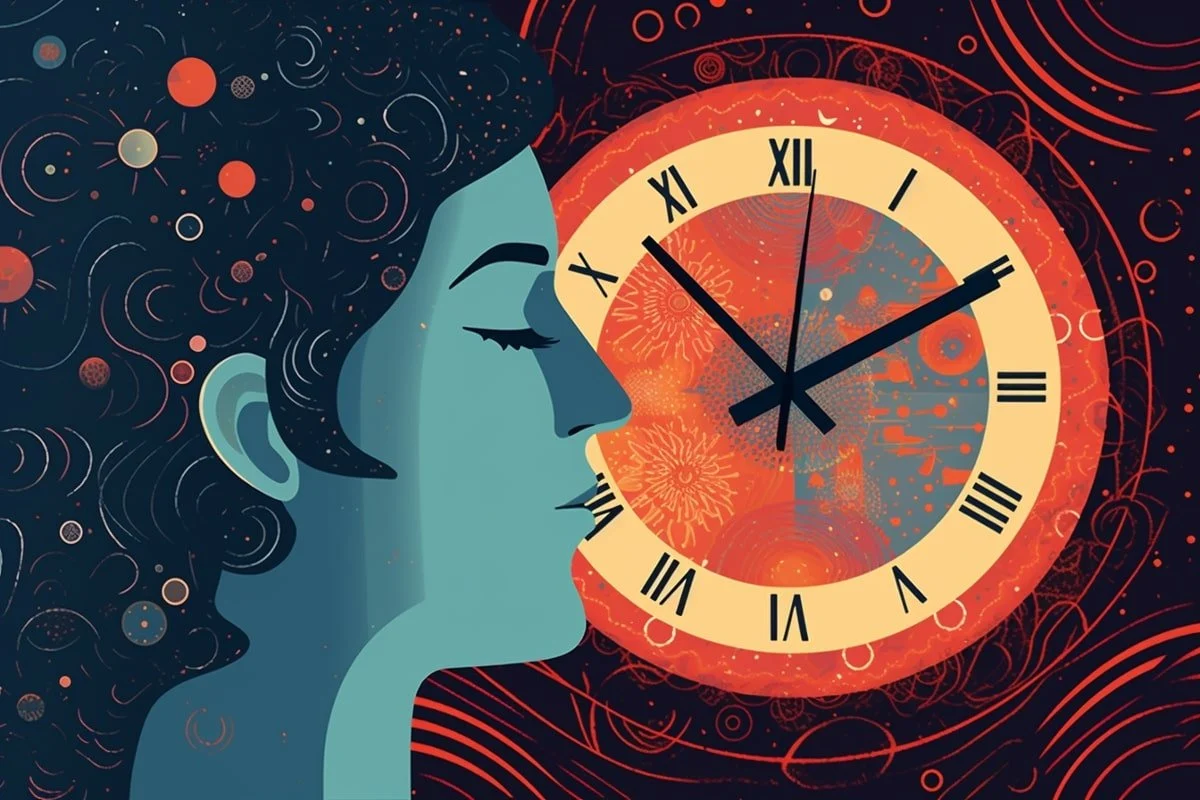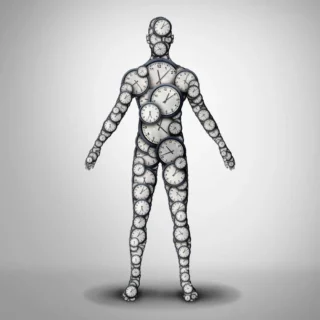Understanding Your Body’s Inner Clock: The Impact of Circadian Rhythms on Health

Our bodies operate on an internal clock that regulates various physiological processes across a 24-hour cycle, influencing everything from our sleep patterns to the way we metabolize food. This internal clock, known as the circadian rhythm, is crucial to our overall health and wellbeing.
In this in-depth exploration, we will uncover the scientific insights on how circadian rhythms affect both our physical and mental health. Whether you’re a health aficionado, a wellness constructor, or simply a lover of science, this narrative around the hidden power of your body’s clock will inform, intrigue, and possibly transform your daily routine.
The Blueprint of a Circadian Rhythm
Circadian Rhythms Unveiled
The word “circadian” comes from the Latin words “circa” (around) and “diem” (day), indicating that these are rhythms that follow a roughly 24-hour day-night cycle. They are endogenously generated, but are affected by external cues, most notably light and darkness.
The Body’s Internal Clockwork
Circadian rhythms are more than just timers; they are a fundamental element woven into the fabric of our existence, directing the ebb and flow of multiple body functions throughout the day. The suprachiasmatic nucleus in the hypothalamus is the hub for this internal clock, which orchestrates a complex symphony of hormone releases, body temperatures, and cellular activities.
See a video featuring Dr. Sachin Panda PhD on how the circadian affects our metabolic health

The Sleep-Health Connection
Navigating The Sleep-Wake Cycle
The circadian clock is intricately linked to the sleep-wake cycle, and the hormone melatonin is the conductor of this symphony. Melatonin levels typically increase in the late afternoon and peak in the early hours of the morning, preparing the body for sleep. Conversely, cortisol, the so-called stress hormone, peaks in the morning, awakening the body and getting it ready for the day.
The Significance of Sleep Consistency
Irregular sleep patterns can disrupt the circadian system, leading to issues like insomnia, sleep apnea, or even sleep phase disorders. These interruptions not only impact sleep quantity but also the quality of our rest, which is arguably the foundation of good health.

Impact on Physical Well-being
Balancing The Metabolic Scales
Circadian rhythms are essential for metabolic function, influencing the peaks and troughs of hunger, the breakdown of nutrients, and the regulation of glucose levels. Disruptions to these rhythms can lead to an increased risk of metabolic disorders, weight gain, and even obesity.
The Immune System Dance
The time-keeping system of the body also holds sway over the immune system, regulating the release of immune cells at the most effective times. When we are not in sync with our internal clock, our immune defences may operate at suboptimal levels, leading to greater susceptibility to infections and inflammatory conditions.

Influence on Mental Health and Cognition
Dawn and Dusk of Mood Disorders
Circadian disruptions have been strongly associated with mood disorders, such as depression and bipolar disorder. The causality may be bi-directional; mental health influences circadian rhythms, and vice versa. When these rhythms go awry, it often leads to disturbances in the hormone balance and neural networks that are critical to mood stabilization.
Cognitive Harmony
Circadian rhythms also impact cognitive function and our ability to concentrate, reason, and recall information. It’s no wonder that instances of cognitive impairment are often linked to individuals who work against their natural sleep-wake patterns.

Aligning with Your Body’s Clock
The Art of Circadian Synchronization
Incorporating circadian-awareness into your daily routine can yield profound benefits to your health. This involves understanding your body’s natural energy peaks and planning high-focus work or exercise during these times, and restful activities during your internal lull periods.
The Sleep Sanctuary Creation
Creating a sleep sanctuary that resonates with the circadian system can significantly improve sleep quality. This includes dimming the lights and reducing screen time before bed, keeping the sleeping environment cool and dark, and establishing consistent sleep and wake times.
Navigating Modern Lifestyle Challenges
The Modern Dilemma of Disrupted Rhythms
Our modern way of life can significantly disrupt the natural circadian rhythms. The scourge of evening screen time, late-night work shifts, and even intercontinental travel can throw our internal clock for a loop, leading to a range of health problems.
Strategies for Resetting
If you find that your circadian rhythms are out of sync, there are strategies you can use to help readjust your body’s clock. These include exposure to bright light in the morning, maintaining a consistent sleep schedule, and employing relaxation techniques in the evening.
Conclusion: A Harmonious Life with Circadian Rhythms
Our understanding of circadian rhythms is continually evolving, but what remains clear is their central role in maintaining health and fostering well-being. By respecting and aligning our lifestyles with these natural cycles, we stand to gain a treasure trove of benefits that extend far beyond the boundaries of our internal clock.
The science speaks for itself. It’s time to listen to our bodies’ whispers and work with, not against, our circadian rhythms. Whether it’s ensuring restful sleep, fine-tuning our metabolisms, guarding our mental fortitude, or honing our daily existence for maximum health, the circadian rhythm is a symphony worth fostering.
Now is your chance to make deliberate choices that honour your circadian system. It might just be the life rhythm that outlasts the test of time.


